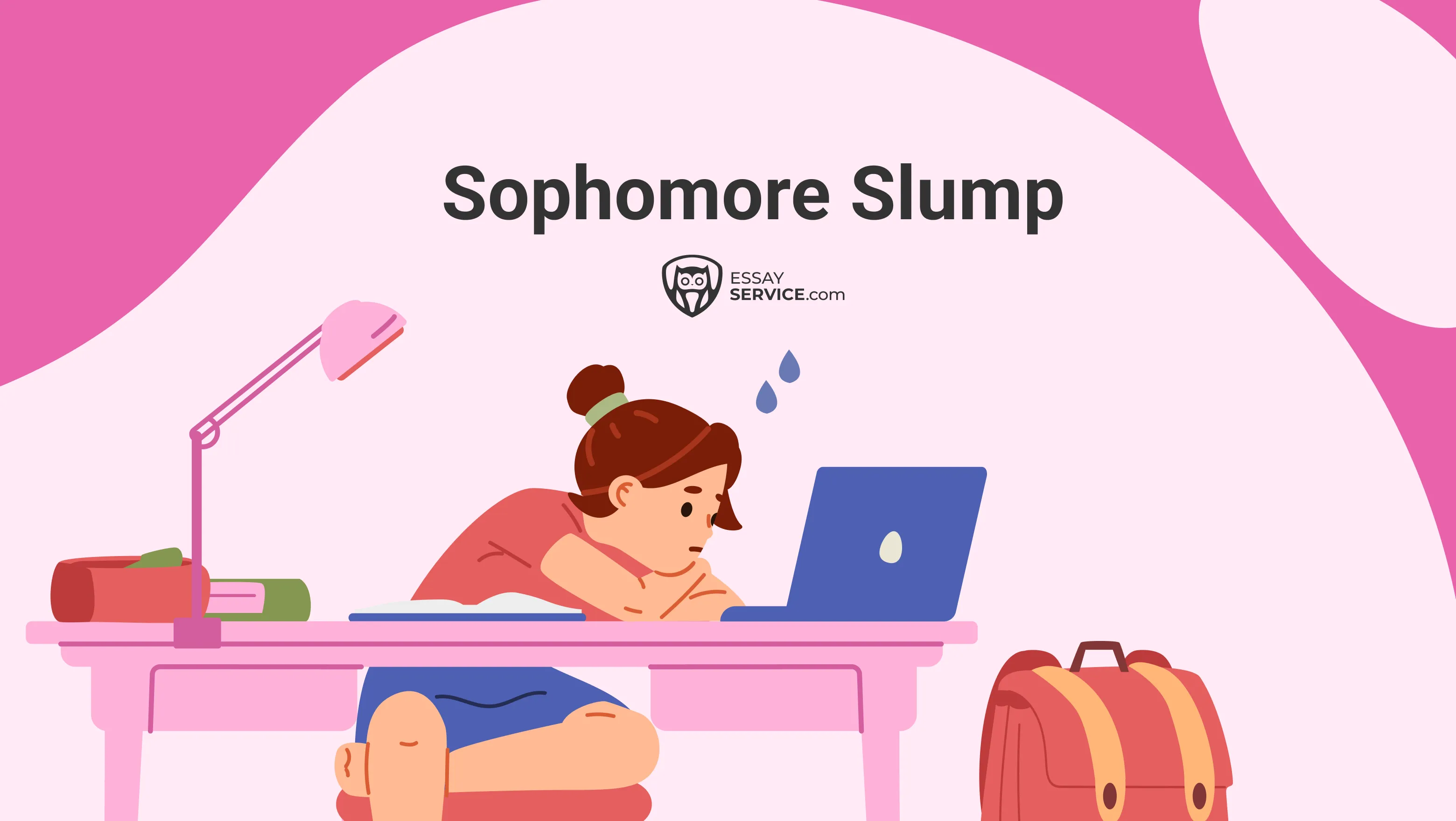Did you know that the youngest high school graduate was Michael Kearney, who graduated at the age of 6?
Early graduation sounds ambitious, but for some students, it’s the right move. Still, it calls for self-discipline, academic maturity, clear goals, and regular check-ins with a trusted school counselor. Here’s what you should do if you’re thinking about taking this step:
- Start college earlier and earn college credits
- Take community college courses or online classes
- Save money by finishing school early
- Explore your career path sooner
- Use a gap year for work or travel
This article covers the pros of graduating high school early and what students should consider before making the leap.
EssayService helps early graduates with writing tasks, personal statements, and college application support every step of the way.

What Does It Mean to Graduate Early?
Graduating early means finishing high school before the usual four years are up. Some students do it a semester early. Others manage to walk away after junior year. It often takes summer classes, online work, or dual enrollment to make it happen, but it can open a lot of doors.
There’s no one reason students choose this path, but here are a few common ones:
- They want to start college early and earn credits right away
- They’re planning a gap year to travel or work
- They need to step into a job or help at home
- They’re focused on a bigger goal and don’t want to wait
Pros and Cons of Graduating High School Early
Graduating early can open doors that don’t usually show up until later. Some students are ready to jump into college, start working, or take time to focus on something they care about. For the right person, it’s a chance to take control and move ahead. But it’s a big decision, and not always an easy one. Here’s a quick look at the pros and cons of early high school graduation:
Pros of Graduating High School Early
Graduating early creates space for something more. For many students, this decision brings many advantages:
- Entering the Workforce Sooner
- Saving Money
- Time for Further Education or Internships
- Personal Fulfillment
- More Time for a Gap Year
- Avoiding Senioritis
Entering the Workforce Sooner
Graduating early lets you step into the job market while others are still in class. Whether it’s a part-time job or something full-time, you can build experience and learn workplace skills, eventually figuring out what kind of work actually fits you before committing to a long-term career path.
Saving Money
Early graduates often find themselves paying for fewer semesters of high school-related costs, such as transportation, meals, activity fees, etc. If they start college early, they may also cut living expenses by graduating earlier than their peers. For families watching tuition and living costs add up, even one semester can make a huge difference.
Time for Further Education or Internships
Early graduation doesn’t necessarily mean rushing into college. It can create space for dual enrollment, entry-level college courses, internships, and other opportunities. If used wisely, that extra time can help you build new skills and strengthen the ones you already have, gain confidence, and discover your interests before getting into a full college schedule.
Personal Fulfillment
For students who feel held back or unchallenged in high school, graduating early can be a huge relief. It’s a way to move forward with purpose. Instead of waiting for the year to end, early graduates get to act on their goals and spend time doing what actually motivates them.
More Time for a Gap Year
Finishing school early gives students the freedom to pause, travel, volunteer, or explore new interests before college. A gap year can help you reset and grow. Don’t think of it as time off. Rather, it’s time well spent, without the pressure of senior year deadlines.
Avoiding Senioritis
Let’s be honest: senior year can drag. For students who’ve already met graduation requirements and feel ready to move on, staying can feel like going through the motions, over and over again. Graduating early will spare you that slump and help you use your energy on your next steps.
Cons of Graduating High School Early
Graduating early can feel like the right move, that is, until you start noticing what you’ve left behind. And we don’t just mean schoolwork. It’s the small things, the people, and the time you didn’t realize you needed. Before you rush, take time to think about the parts you might miss:
- Missing Out on High School Experience
- Less Time for Networking
- Increased Stress and Pressure
- Limited Academic Depth
- Potential Lack of Readiness
Missing Out on High School Experience
There’s something about senior year that just stays with people. Not just the prom or the graduation ceremony, but little things like lunch with friends you’ve known forever. You don’t think about these casual, everyday moments until they’re gone. Graduating early means stepping away before those moments get a chance to unfold.
Less Time for Networking
High school is the perfect place for networking. It’s where you meet the teachers who write your recommendations and the friends who understand exactly what you’re going through, after all, you all share the universal experience of high school. Graduating early can cut those connections short, and that can be a great loss.
Increased Stress and Pressure
Fitting everything into a shorter timeline is hard. The days get longer, the work keeps coming, and the expectations feel heavier than ever before. You might push through, yes, but it can take a toll on you. When there’s no breathing room, even those early graduates who usually do well can get burned out.
Limited Academic Depth
When you put yourself on a race, focusing on finishing fast, there’s less time to try new classes or learn about the things you find fascinating. Maybe you miss that art class you’ve always been curious about. Or skip a chance to join a club that could’ve changed your direction.
Potential Lack of Readiness
Getting ahead on paper isn’t the same as feeling ready in real life. College and jobs come with new challenges like managing your time, speaking up for yourself, figuring things out without someone walking you through it. Some early graduates feel confident, but others get there later. But leaving before you’re ready can make the next step feel a lot harder.
Fewer Scholarship Opportunities
Leaving high school early sometimes means missing out on scholarships that are closely tied to senior year achievements or extracurriculars. Many awards require participation in year-long programs, leadership roles, or final-year competitions. With less time to build your resume or qualify for school-based funding, early graduates might have fewer financial aid opportunities when applying to college.
How to Graduate Early from High School?
There are a few different ways to graduate high school early, but obviously, you can’t figure it out overnight because it takes planning, flexibility, and a clear vision about doing it in the first place. If you're absolutely sure about your decision, here’s how to move things in that direction:
Start with The Bigger Picture
Before anything else, take a second and ask why you want this. Not just what you're trying to skip, but what comes next. Early graduation is a smart choice only if there’s a purpose backing it up.
Think about:
- Are you trying to start college early?
- Do you need time for work, travel, or something else?
- Are you feeling unchallenged at school and ready for more?
Once you know the why, the rest of the path will look clearer.
Make a Timeline That Fits You
You don’t need a perfect plan, only a realistic one. Talk to your school counselor about when you want to graduate and what you’d need to finish by then. Some students aim for a semester early, others a full year. It all comes down to pace and how much you’ve already done by now.
- Break your goal into smaller pieces
- Decide which semester or year you'd like to finish
- Make room for changes. You might need to adjust your plan along the way
Figure Out What Your School Expects From You
Every school handles early graduation differently. Some require specific credits, others want certain exams done. Before you start rearranging your schedule, make sure you know the exact requirements.
- Ask your school counselor about graduation requirements
- Check how many credits you’ve earned and how many are left
- See if there are required courses you haven’t taken yet
Adjust Your Schedule
Graduating early usually means packing more into your schedule, but that doesn’t mean you have to push yourself to the edge. What worked before might need to change, and that’s completely fine.
- Consider taking summer classes to knock out required courses
- Look into online classes or credit recovery options that your school approves
- Ask if you can double up on certain subjects during the semester
Consider Alternatives to The Same Goal
Early graduation doesn’t always mean rushing through four years of high school. Some students earn college credits through dual enrollment at a local community college. Others take online courses or independent study options that count toward their high school diploma.
- Look into dual enrollment or community college classes
- Ask about online options that your school accepts
- See if summer classes can help you catch up or get ahead
Should You Graduate High School Early?
Sometimes, early graduation simply makes sense. You’re probably a good candidate to become one of the early high school graduates if:
- You’ve already completed most of your required courses
- Home isn’t a great place to be, and you’re ready to move on
- Your mental health improves when you're out of a traditional school setting
- You’re bored in class and not feeling challenged
- You want to start college or a trade program sooner
- You’ve got a career goal and want to get started
- You need to earn money and join the workforce
- You’re relocating and want a clean break
- You’re already enrolled in dual enrollment or early college classes
How to Plan Ahead for Early Graduation
Graduating early isn’t something you just decide overnight and do. If you're ready to take that step, here's how to make sure you're actually set up for it.
Know why you're doing it
Think about what’s pushing you to finish high school early. Maybe you’re ready for college. Maybe home isn’t the best place right now. Or maybe you just feel done with it all. Whatever the reason is, get clear on it. That ‘why’ will keep you grounded.
Talk to your school counselor
Don’t skip this. Your counselor knows what your school expects, how many credits you need, and which classes you have to complete before you can graduate. Ask questions and check if your plan even works with your school’s rules.
Build a class schedule that works
Once you know what’s left to finish, start figuring out how to get it done. Maybe that means summer school, online classes, or a heavier load for a few semesters. Just make sure it’s manageable. Don’t stack too much and burn out halfway through.
Check in with yourself regularly
This is your path, so check how you’re doing along the way. Are you stressed out? Still sure about your goals? Early graduation moves fast. Make sure you’re feeling ready for what comes after.
Final Thoughts
Whatever your reason, early graduation is possible with the right plan and support. What you should realize is that it’s not about rushing to the finish line. You have to make sure you’re ready to take the next step on your own timeline.
Of course, it won’t always be simple. The work will keep coming, and the pressure to stay on track can mess with your mental health. Whether you're graduating now or still planning it out, EssayService is here to support you when things get overwhelming. Reach out to us whenever for us to take the academic pressure off your shoulders.
Frequently Asked Questions
How Can I Graduate High School Early?
First, meet with your school counselor. You’ll need to complete your school’s credit and course requirements faster than usual. Then you can go about planning your next steps.
Is Graduating Early Worth It?
Graduating early is totally worth it for students who have already figured out what they want to do next. Make sure you’re ready for the next steps and are okay with missing out on typical high school experiences.
What Is the Youngest Age to Finish High School?
The minimum age for graduation is 16. But some students can graduate at 14 or 15 years old if they pass the exams needed to earn their high school diploma.

Susan shapes the new generation of nursing professionals as a professor. Her medical degree and teaching experience make for a wealth of advice on researching and writing complex papers.
- High School of America. (n.d.). The ultimate guide to early graduation. https://www.highschoolofamerica.com/
New posts to your inbox
Your submission has been received!

.png)

